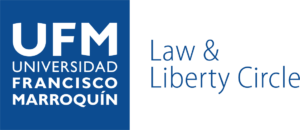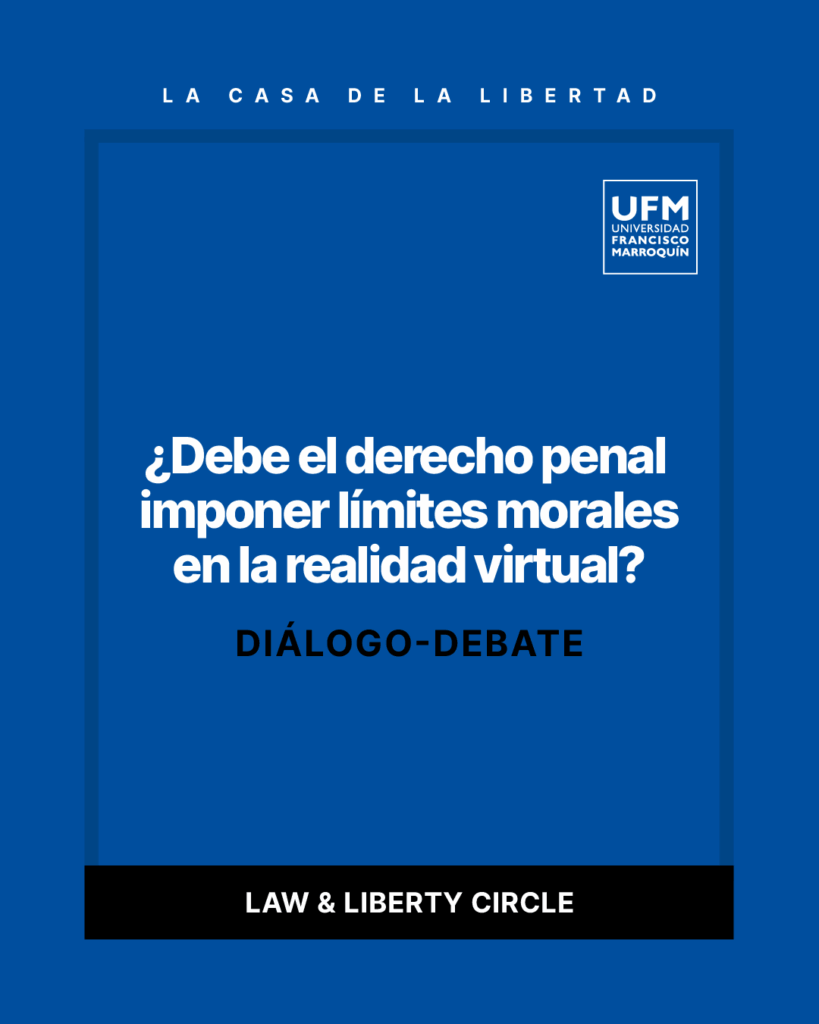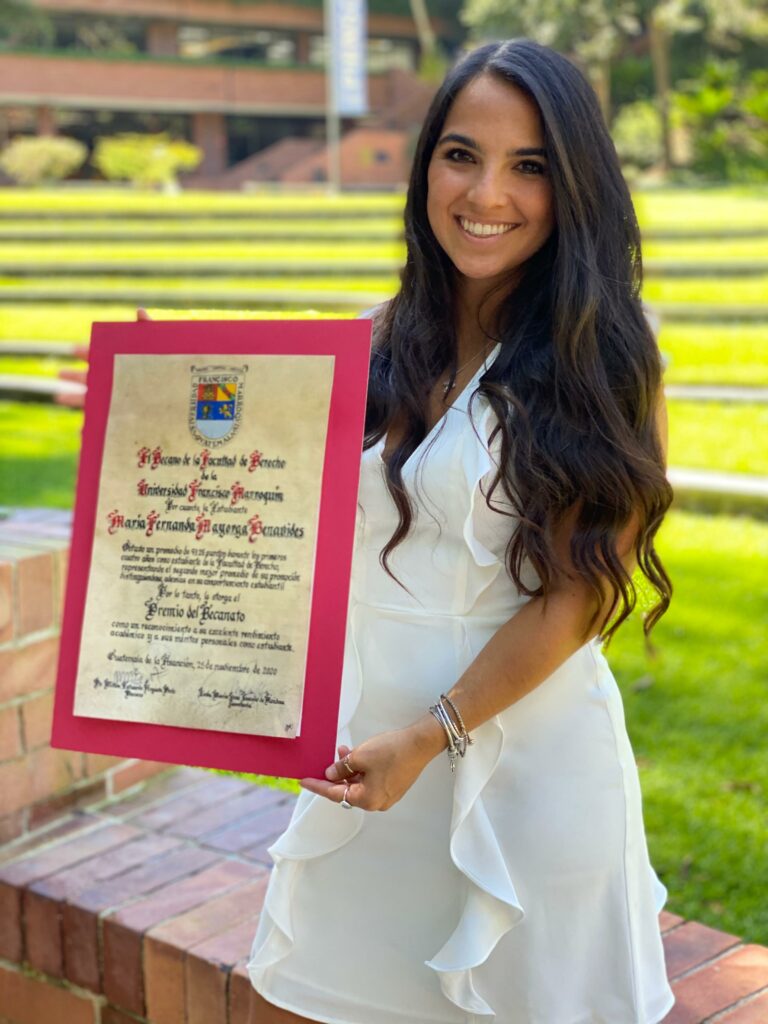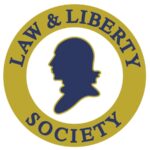The Mission and Principles of ILLS
Inspired by, and in solidarity with, the Federalist Society for Law and Public Policy Studies, Inc. (US), the International Law and Liberty Society (“ILLS”) is a multinational network of nonpartisan groups. Its members include lawyers, law students, law faculty, and others interested in current intellectual and practical developments in law and policy, and in improving our present and future leaders’ understanding of the rule of law, natural law, individual liberty, personal responsibility, limited government, separation of powers, judicial restraint, economic freedom, national sovereignty, subsidiarity, and the fundamental freedoms of freedom of conscience and religion, freedom of thought, belief, opinion, and expression, freedom of peaceful assembly, and freedom of association.
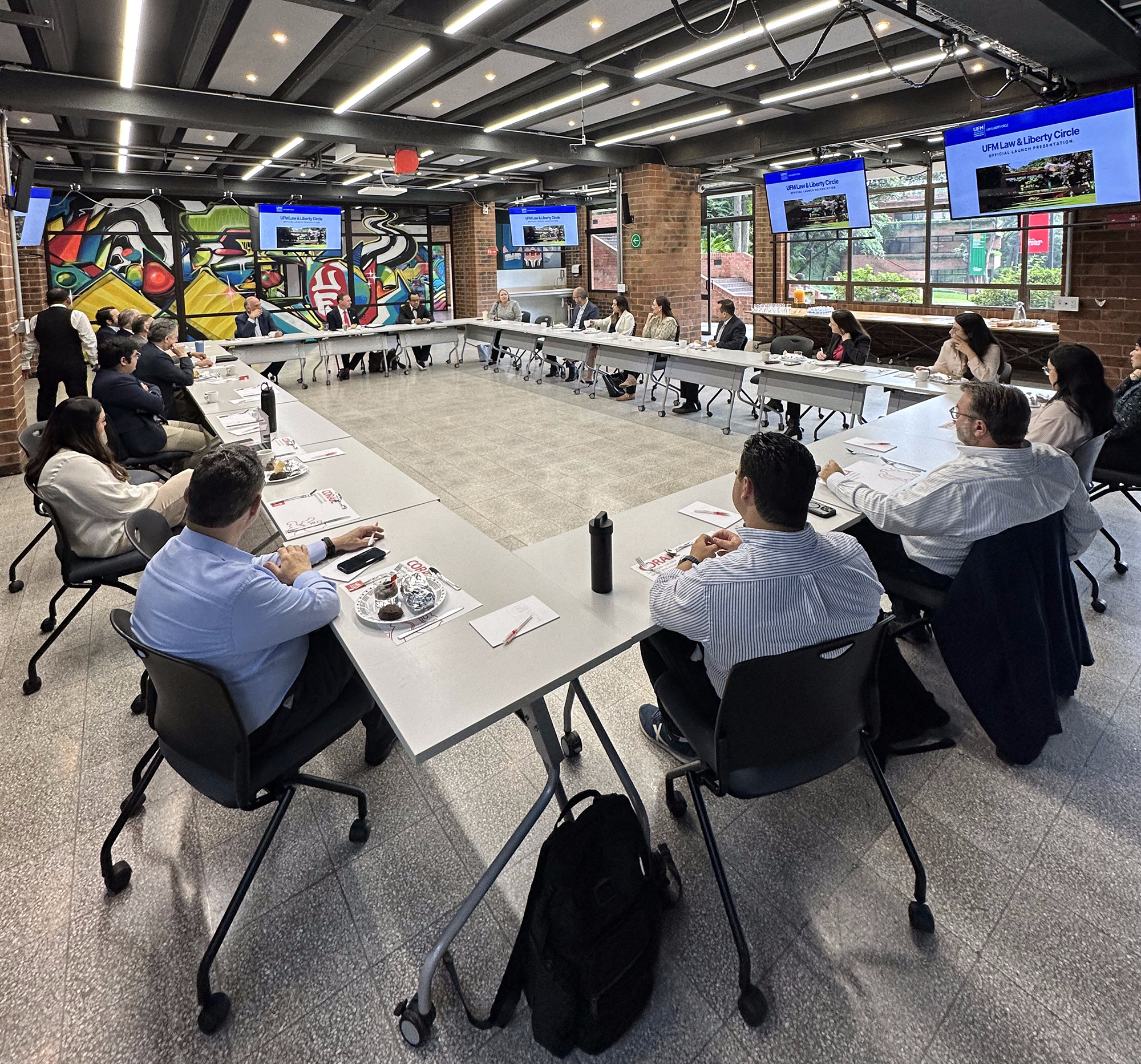
The mission of Universidad Francisco Marroquín is to teach and disseminate the ethical, legal, and economic principles of a society of free and responsible persons.
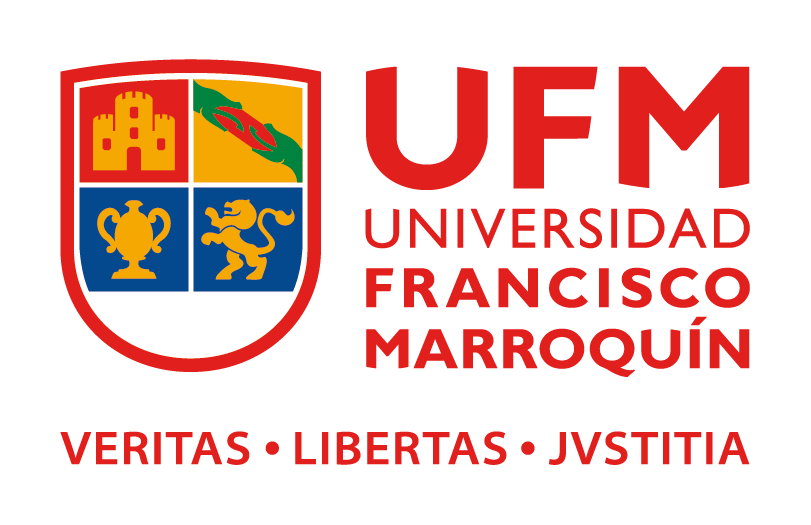
UFM Law & Liberty Circle Purpose
The purpose of the UFM Law & Liberty Circle is to foster critical thought and debate among students, lawyers, law professors, and any others interested in exploring the historical foundations of the rule of law and constitutionalism, and their application to current intellectual and practical developments in law and policy.
All activities of the UFM Law & Liberty Circle will be conducted in alignment with the UFM mission and the principles of the International Law & Liberty Society.
The UFM Law & Liberty Circle will function principally as a student-focused program under the guidance of a program director and faculty advisors, and will be accountable to UFM authorities. An advisory council may be formed to provide strategic input.
UFM Law & Liberty Circle
Leadership
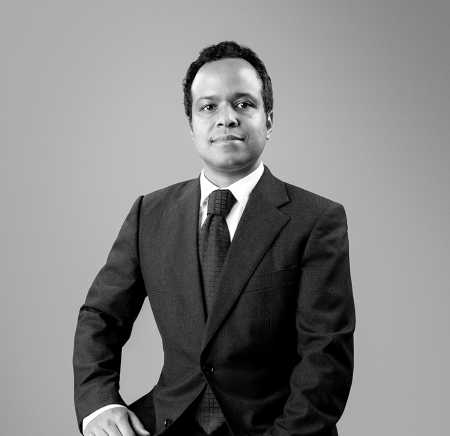
Jesús María Alvarado
UFM professor of Law and director of Postgraduate Studies

Andres Wyld
Attorney and notary graduated Cum Laude from Universidad Francisco Marroquin, Guatemala. LLM from London School of Economics and Political Science. Former diplomat and in-house attorney and private practitioner specializing in intellectual property law.
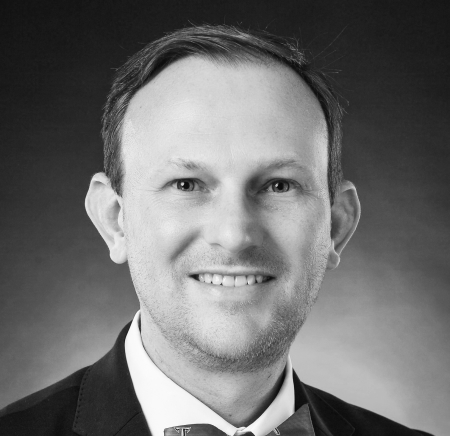
Allen Mendenhall
Associate Dean and Grady Rosier Professor in the Sorrell College of Business at Troy University. Executive Director, Manuel H. Johnson Center for Political Economy. Associated Scholar with the Ludwig von Mises Institute, and Policy Adviser for the Heartland Institute.
Who Should Participate?
Participation in the UFM Law & Liberty Circle is open to any student enrolled at UFM, as well as any interested professor, administrative personnel, or alumnus who affirms their solidarity with and agrees to uphold the mission and philosophy statement of UFM and the mission and principles of the ILLS. Interested professionals and students from other universities in Guatemala and elsewhere may apply to participate. Their request will be decided on by the UFM Law & Liberty Circle Program Director.
We especially seek participants who are eager for intellectual engagement and who will be regularly involved in and support Circle activities.
Events
Diálogo-debate: ¿Debe el derecho penal imponer límites morales en la realidad virtual?
Fecha: October 08, 2025
Hora: From 6:00 p. m. to 8:00 p. m.
Modalidad: In-person
En un mundo donde cada vez es más difícil discernir entre una imagen real y una creada con herramientas tecnológicas, ¿es necesario cuestionarse si debería estar prohibido crear cierto tipo de videos o imágenes que repliquen un comportamiento penado por la ley? El dilema es el siguiente: si no se causa daño a ninguna persona real ni se utiliza ningún elemento de su identidad —como su imagen o su voz—, ¿es responsabilidad del derecho penal prohibir la creación de material como los videos pornográficos con niños? ¿O debería mantenerse fuera del ámbito de la ley?
Law & Liberty Book Club
Fecha: November 21, 2025
Hora: From 1:00 p. m. to 2:30 p. m.
Modalidad: In-person
Última sesión del 2025: viernes 21 de noviembre. El Law & Liberty Book Club es un espacio de deliberación, en el cual pretendemos reunir a estudiantes, académicos y profesionales del derecho y áreas afines, interesados en explorar los fundamentos del Estado de derecho, la separación de poderes, el federalismo y otras bases del orden constitucional libre. En cada sesión se requerirá lectura previa y cada sesión se desarrollará en formato de diálogo moderado, facilitado por un miembro del círculo, quien conducirá la discusión, recopilará las preguntas que se formulen y fomentará el intercambio de ideas. El primer libro a explorar es The Meese Revolution: The Making of a Constitutional Moment, de Steven Gow Calabresi y Gary Lawson. En esta obra se analiza la revolución jurídica impulsada en los Estados Unidos durante los años ochenta por Edwin Meese III (doctor honoris causa de la UFM), cuyos efectos perduran hasta hoy en la…
El dominio de las aguas: propiedad, derecho civil y los límites del poder público
Fecha: September 03, 2025
Hora: From 6:00 p. m. to 7:30 p. m.
Modalidad: In-person
El derecho de aguas en Guatemala, lejos de constituir un vacío normativo, representa un sistema jurídico completo, preciso y vigente, anclado en la ley. La correspondiente normativa distingue con nitidez entre los diferentes tipos de aguas y regula sus formas de aprovechamiento, uso, captación, transmisión y servidumbre, todo según los principios del derecho civil clásico y con reconocimiento explícito del derecho de propiedad privada. ¿Hasta dónde llega la titularidad pública sobre las aguas, establecida en el artículo 121 de la Constitución de 1985? ¿Puede una futura ley especial alterar derechos adquiridos legítimamente de acuerdo con el régimen civil vigente? ¿Estamos ante una posible colisión entre la legalidad civil y ciertas aspiraciones de otra naturaleza? Estas son las preguntas en torno a las cuales surge esta reflexión crítica, que invitan a pensar sobre el presente y el futuro del derecho de aguas en Guatemala.
Originalismo como método interpretativo de la Constitución: reflexiones desde Georgetown
Fecha: August 26, 2025
Hora: From 4:30 p. m. to 5:30 p. m.
Modalidad: In-person
Conversaremos con María Fernanda Mayorga, abogada y notaria, sobre su experiencia en el Originalism Summer Seminar del Georgetown Center for the Constitution, una experiencia intensa, en la que participaron académicos, jueces y litigantes de alto nivel, para explorar juntos los fundamentos teóricos, las críticas contemporáneas y las aplicaciones prácticas del originalismo como método de interpretación constitucional. Durante una semana los participantes discutieron sobre temas como el papel del precedente, la discrecionalidad en la interpretación de normas constitucionales y el impacto del originalismo en los tribunales actuales, incluyendo intercambios con jueces federales y magistrados de la Corte Suprema de los EE. UU. En esta charla, María Fernanda compartirá con los asistentes las principales ideas debatidas, su relevancia y cómo en tales marcos se puede dialogar frente a los desafíos interpretativos en América Latina. ¿Es posible aplicar el originalismo en Guatemala? ¿Qué puede aprender nuestra tradición jurídica en estas discusiones? ¿Qué papel…
Digital Assets
We invite you to delve into the wealth of knowledge offered through our channels. Each platform hosts an extensive collection of digital content designed to inspire thought, spark intellectual curiosity, and foster a deeper understanding of key issues in law, liberty, and society. With expert speakers, insightful discussions and engaging presentations.
Contact
Please do not hesitate to reach out to us with any questions, insights, or thoughts you may have. We value your engagement and look forward to meaningful conversations.
